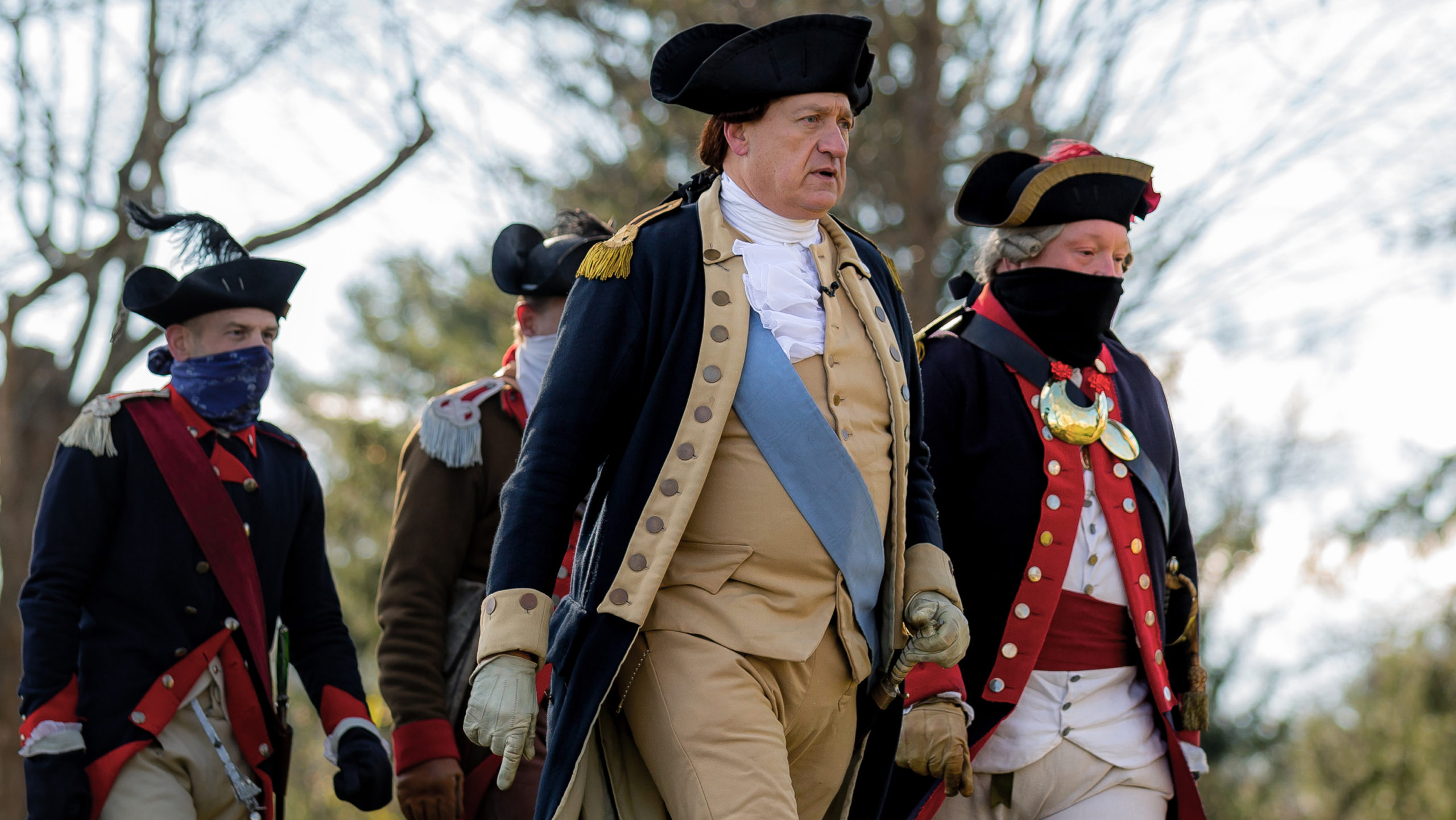
Today, the Ten Crucial Days are recognized as a critical turning point during the Revolutionary War. But at the time, was anyone beyond the soldiers waging battle even aware of the Christmas night crossing that put everything in motion?
“The crossing became well-known fairly quickly,” says Kimberly McCarty, the park’s curator.
On December 27, General George Washington sent a letter to John Hancock, the president of the Continental Congress, in which he described his account of the crossing and the ensuing Battle of Trenton. Congress read the letter four days later. And four days after that, on January 4, 1777, the letter was printed in a Philadelphia newspaper called The Pennsylvania Packet, McCarty explains.
Even before that, on December 30, 1776, the Hessian prisoners captured in the Battle of Trenton were paraded through the streets of Philadelphia. There was at least a budding awareness of some type of triumph, even if the scope and implications were not immediately clear.
But once the Packet printed Washington’s letter, it was quickly picked up by other newspapers throughout the colonies. In his book, Washington’s Crossing, David Hackett Fischer describes the reaction of a British landowner named Nicholas Cresswell when news of the crossing and battle reached him in Loudoun County, Virginia, on January 6.
“Hope it is a lie,” Cresswell writes that day. The next day he added, “The news is confirmed. The minds of the people are much altered.”
The gravity of the reports was clear to everyone right away, according to McCarty. “It came to be viewed by many colonists as a divine sign that they were on the right side of the war,” she says.
Hackett Fischer writes: “They deeply believed the Battle of Trenton was a sign of God’s Redeeming Providence, and proof that the Continental Army was His instrument. The idea of God’s all-powerful Providence gave them a sense of agency in the world, as a part of divine purpose.”
And “every British leader denied responsibility and looked for someone else to blame,” Hackett Fischer writes. In fact, as the news reached Europe, it sparked a debate about the Hessian presence in America, he says.
Cresswell witnessed the tide turning right before him. “Volunteer Companies are collecting in every County on the Continent and in a few months the rascals will be stronger than ever,” he observed, according to Hackett Fischer. “This has given them new spirits, got them fresh succours and will prolong the War, perhaps for two years.”
In the years that followed, the crossing and the Battle of Trenton ascended to an “iconic” status within a relatively brief period, McCarty says.
In fact, following the British surrender at Yorktown in 1781, British General Charles Cornwallis toasted Washington, saying: “… fame will gather your brightest laurels rather from the banks of the Delaware than from those of the Chesapeake.”

